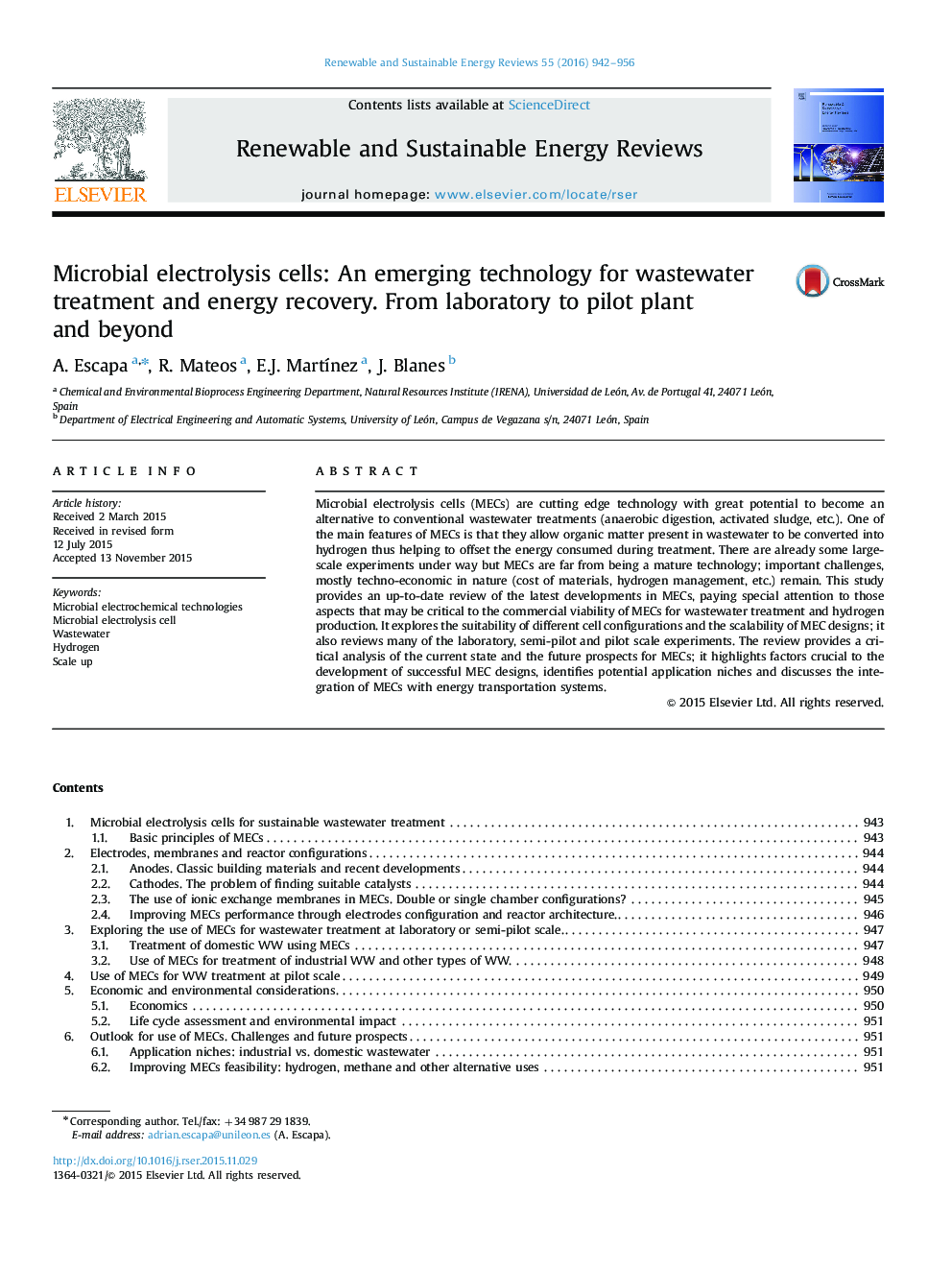| Article ID | Journal | Published Year | Pages | File Type |
|---|---|---|---|---|
| 8115406 | Renewable and Sustainable Energy Reviews | 2016 | 15 Pages |
Abstract
Microbial electrolysis cells (MECs) are cutting edge technology with great potential to become an alternative to conventional wastewater treatments (anaerobic digestion, activated sludge, etc.). One of the main features of MECs is that they allow organic matter present in wastewater to be converted into hydrogen thus helping to offset the energy consumed during treatment. There are already some large-scale experiments under way but MECs are far from being a mature technology; important challenges, mostly techno-economic in nature (cost of materials, hydrogen management, etc.) remain. This study provides an up-to-date review of the latest developments in MECs, paying special attention to those aspects that may be critical to the commercial viability of MECs for wastewater treatment and hydrogen production. It explores the suitability of different cell configurations and the scalability of MEC designs; it also reviews many of the laboratory, semi-pilot and pilot scale experiments. The review provides a critical analysis of the current state and the future prospects for MECs; it highlights factors crucial to the development of successful MEC designs, identifies potential application niches and discusses the integration of MECs with energy transportation systems.
Keywords
Related Topics
Physical Sciences and Engineering
Energy
Renewable Energy, Sustainability and the Environment
Authors
A. Escapa, R. Mateos, E.J. MartÃnez, J. Blanes,
